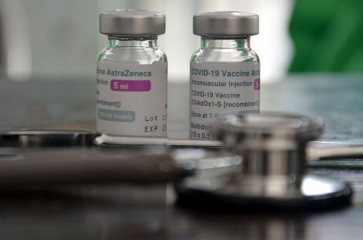Popular Reads
Top Results
Can't find what you're looking for?
View all search resultsPopular Reads
Top Results
Can't find what you're looking for?
View all search resultsVaccine confidence: Why stakeholder engagement matters
Health system capacity and access to vaccine supplies remain key challenges in vaccination efforts. But it is not just supply getting in the way of increasing vaccine coverage.
Change text size
Gift Premium Articles
to Anyone
A
s countries in the Asia-Pacific region, including Indonesia, grapple with surging cases and increasing deaths as a result of COVID-19, there is much interest in the potential for vaccines to help end and contain the pandemic.
Health system capacity and access to vaccine supplies remain key challenges in vaccination efforts. But it is not just supply getting in the way of increasing vaccine coverage. The pandemic has highlighted another significant barrier: a lack of confidence in vaccines and hesitancy among different groups to get vaccinated.
Some of the countries with rising cases, such as Indonesia and Thailand, have witnessed increasing suspicion of vaccines ahead of mass immunization drives. A recent study found that Indonesia saw one of the largest falls in vaccine confidence and public trust worldwide between 2015 and 2019.
Vaccine confidence is a complex and “volatile”, ever-changing field and, in the words of Heidi Larson, the director of the Vaccine Confidence Project, “Sentiments toward vaccines reflect both external events as well as internal emotions.”
While concerns around efficacy and safety explain people’s unwillingness to get vaccinated, it goes beyond that to include their trust in government institutions and the motivations of policy makers, the perceived reliability of health systems, equitable access and compatibility with religious and cultural beliefs.
Between 2015 and 2021, vaccine confidence dropped the most in Indonesia and the Philippines, which resulted in a “knock-on” effect in reducing childhood immunization coverage more broadly. In Indonesia, this was driven by a fatwa claiming that certain vaccines were not halal, as well as local healers promoting natural alternatives.
The history of a country’s experience of previous vaccine rollouts also plays a key role. In the Philippines, fears over a dengue vaccine, which posed a risk to individuals who had not previously been exposed to the virus, prompted outrage and panic across the population. In both countries, this resulted in tragic consequences by disrupting routine immunization and resulted in major outbreaks of measles, which caused the deaths of hundreds of children.


















